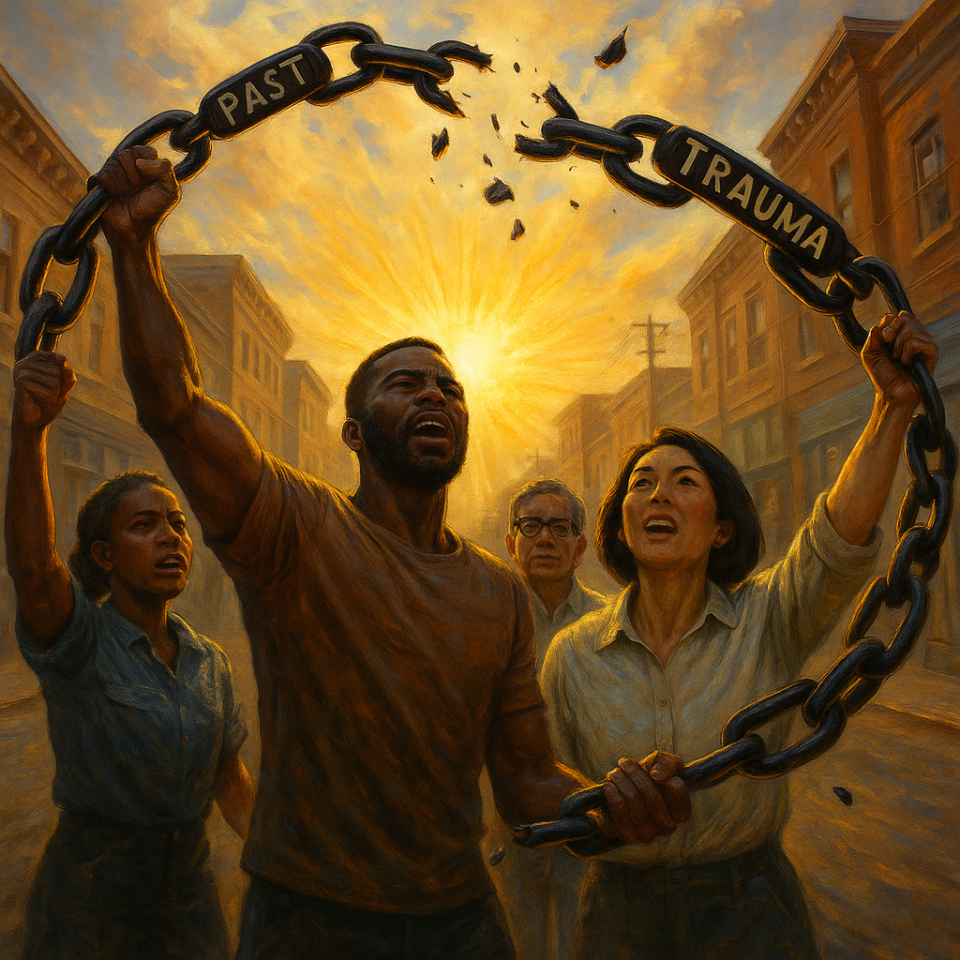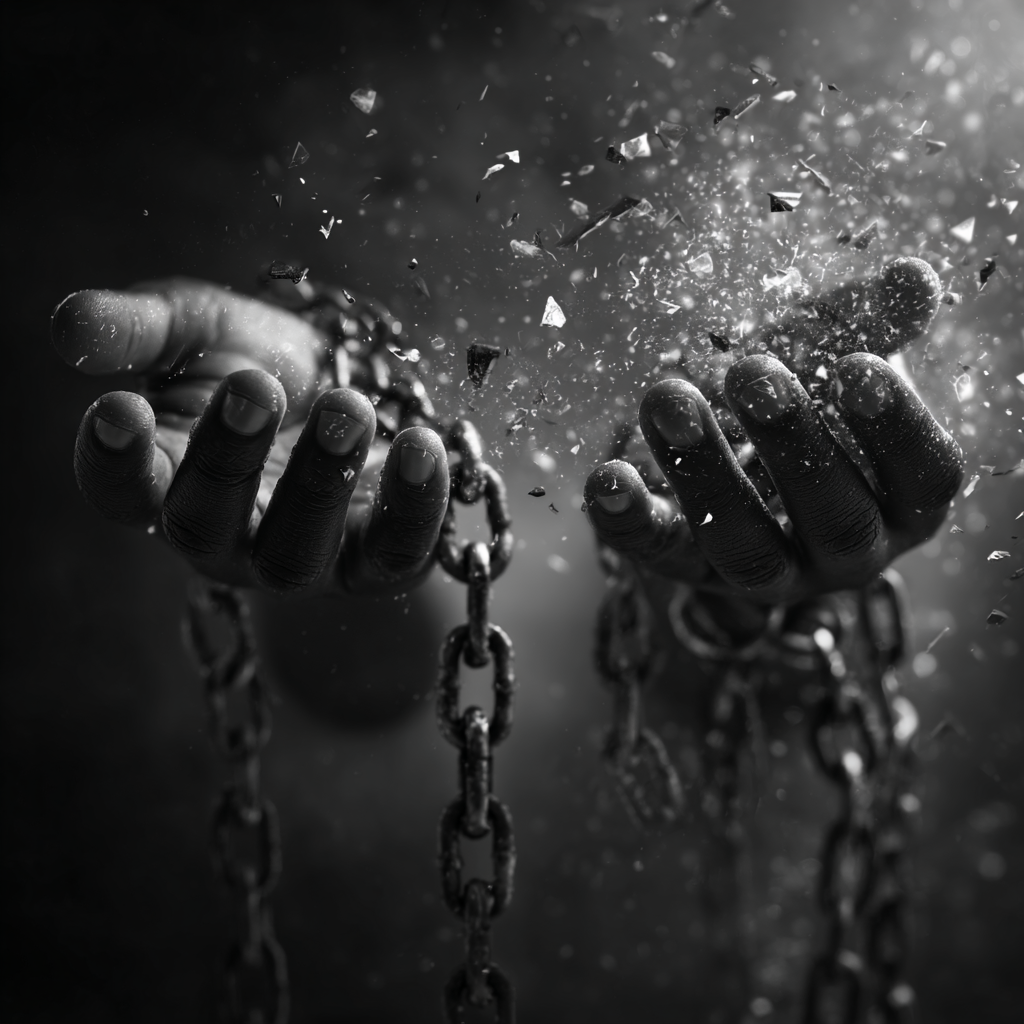By Maelinda Turner, LCSW, MDiv
We carry more than just our own stories in our bodies. As African Americans, especially those of us whose roots run deep in New Orleans soil, we carry the weight of generations—the trauma that started with slavery and has been passed down through Jim Crow, segregation, redlining, and every other way this society has tried to break our spirit. This isn’t just history class material. This is living, breathing trauma that affects how we move through the world today.
What Is Historical Trauma?
Historical trauma is the emotional and psychological wounds that get passed down from one generation to the next. It’s trauma that affects entire communities and cultures, not just individuals. For Black folks in America, this trauma has its roots in slavery, but it didn’t end there. It continued through lynchings, segregation, police brutality, medical experimentation, housing discrimination, and countless other forms of systematic oppression.
Think about it this way: if your grandmother lived through Jim Crow, that experience didn’t just affect her. It affected how she raised your parents, which affected how they raised you, which affects how you move through the world today. The fear, the hypervigilance, the survival strategies—they get passed down like recipes, even when we don’t realize we’re inheriting them.
How Historical Trauma Shows Up in Our Lives
Historical trauma doesn’t always look like what we think trauma should look like. Sometimes it shows up as:
Deep mistrust of institutions: Maybe you avoid doctors even when you need medical care, or you feel anxious dealing with schools, banks, or government agencies. That’s not paranoia—that’s your body remembering generations of harm from these same institutions.
Hypervigilance in certain spaces: Feeling constantly alert or unsafe in predominantly white spaces, or feeling like you have to be “twice as good” to be seen as half as worthy. Your nervous system is responding to real patterns of danger your ancestors experienced.
Difficulty with vulnerability: Finding it hard to trust people outside your immediate circle, or feeling like you always have to be strong and never show weakness. This makes sense when your ancestors’ survival depended on not showing vulnerability to people who might use it against them.
Complicated relationships with success: Sometimes success triggers anxiety instead of joy because people have historically responded to Black success with violence or punishment
The Body Keeps the Score
Our bodies remember what our minds might try to forget. Historical trauma lives in our nervous systems, in our stress responses, in the way we hold our shoulders and breathe (or don’t breathe) in certain situations.
You might notice your body responding to situations that your logical mind knows aren’t dangerous. A police car behind you triggers a fight-or-flight response even when you know you haven’t done anything wrong. Walking into a predominantly white institution makes your heart race even when you’re there for something positive.
These responses aren’t irrational—they’re based on generations of very real danger. Your body is trying to protect you based on the experiences of your ancestors.

Breaking the Cycle
The good news is that we can break trauma cycles. Trauma passes from one generation to the next, and resilience does too. Families inherit pain, and they also inherit strength. Communities that survived slavery, Jim Crow, urban renewal, and Katrina developed powerful tools for healing.
Naming what happened: One of the first steps in healing historical trauma is acknowledging it exists. It’s not about dwelling in the past—it’s about understanding how the past lives in the present so you can make conscious choices about the future.
Connecting with your cultural strength: Our ancestors didn’t just pass down trauma—they also passed down incredible resilience, creativity, and wisdom. Connect with the cultural practices, music, food, and traditions that have sustained our community for generations.
Building chosen family: Sometimes biological family isn’t safe or available for healing work. Create your own family of people who understand your experience and can support your healing journey.
Therapy and Healing
Professional therapy can be incredibly helpful for historical trauma, but it’s important to find therapists who understand the specific experience of Black folks in America. You need someone who understands that your trust issues are survival adaptations passed down through generations, not just personal quirks.
Look for therapists who specialize in racial trauma, who understand the intersection of individual and collective healing, and who won’t try to pathologize responses that actually make perfect sense given our collective history.
If traditional therapy isn’t accessible, consider other healing modalities: support groups with other Black folks, healing circles in your community, or cultural practices like drumming, movement, or art therapy.
Community Healing
Individual healing is important, but historical trauma is a community wound that needs community healing. This might look like:
- Participating in cultural events that celebrate Black excellence and resilience
- Supporting Black-owned businesses and institutions
- Engaging in community organizing that addresses systemic issues
- Sharing stories and experiences with other Black folks who understand
- Teaching young people about their history—both the trauma and the triumph
Honoring the Ancestors
Part of healing historical trauma is honoring the ancestors who survived so that you could be here. They endured unimaginable hardship so that you could have opportunities they never had. Your healing is a way of honoring their sacrifice and ensuring that future generations inherit more healing than harm.
This doesn’t mean you have to be grateful for trauma or oppression. It means recognizing the strength it took to survive and choosing to break cycles of harm while maintaining cycles of strength.
Related: Clearing Clutter
Your Healing Matters
Sometimes it can feel overwhelming to think about healing trauma that’s so much bigger than yourself. But remember: every person who does their healing work makes it easier for the next person. Each time you break a cycle of trauma, you make it less likely the children in your life will inherit it.
Your healing isn’t just personal—it’s political. It’s revolutionary. It’s a way of saying that the trauma stops here, with you, and what gets passed forward is resilience, wisdom, and strength.
Historical trauma is real, and it affects all of us. But so is historical resilience. So is our capacity for healing. So is our power to create something better for the generations that come after us.
The chains we can’t see are real, but so is our power to break them.

